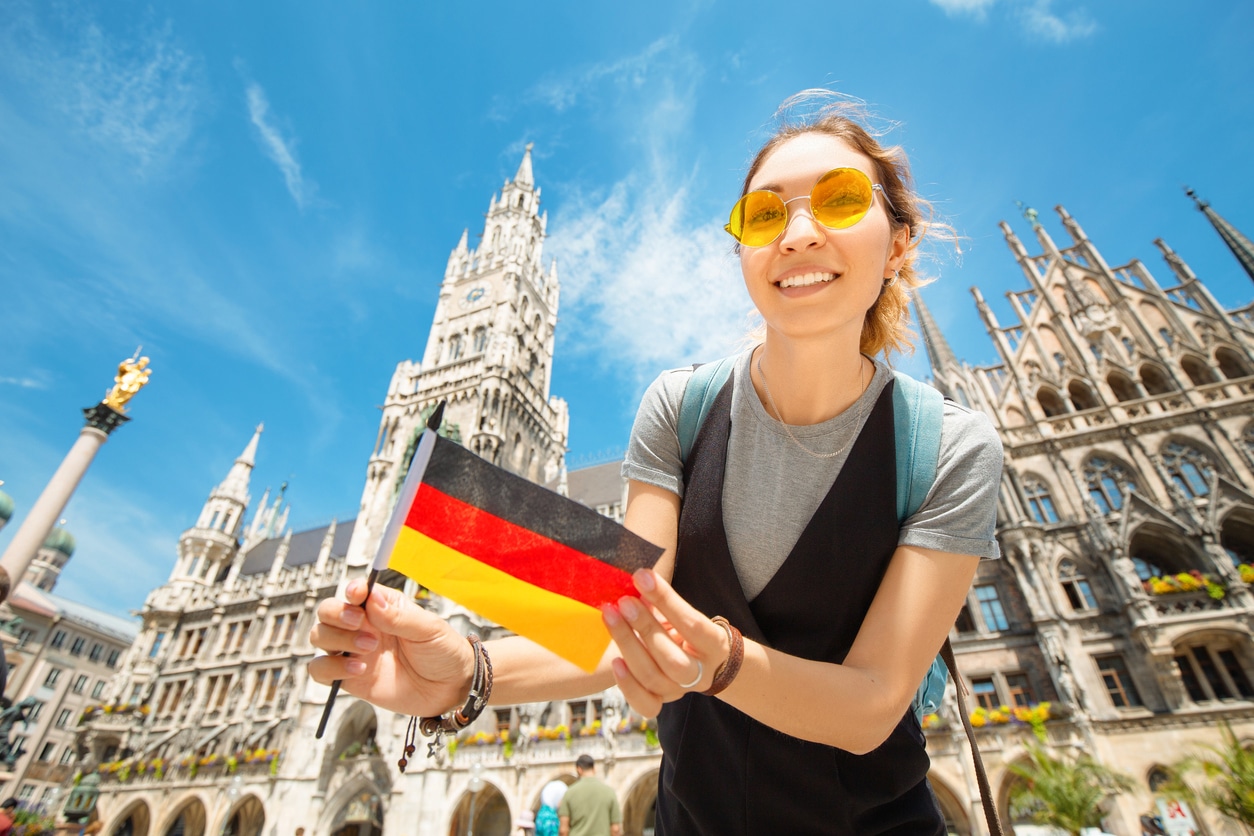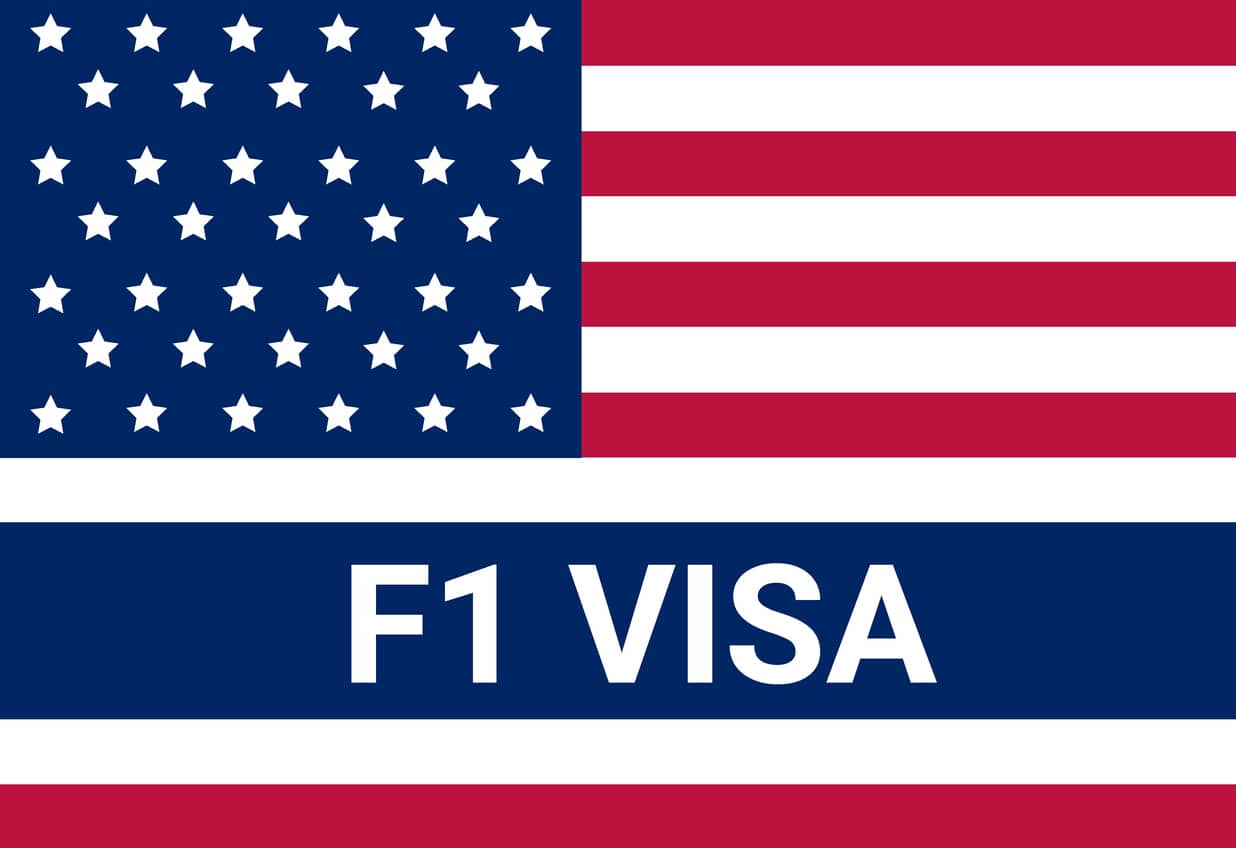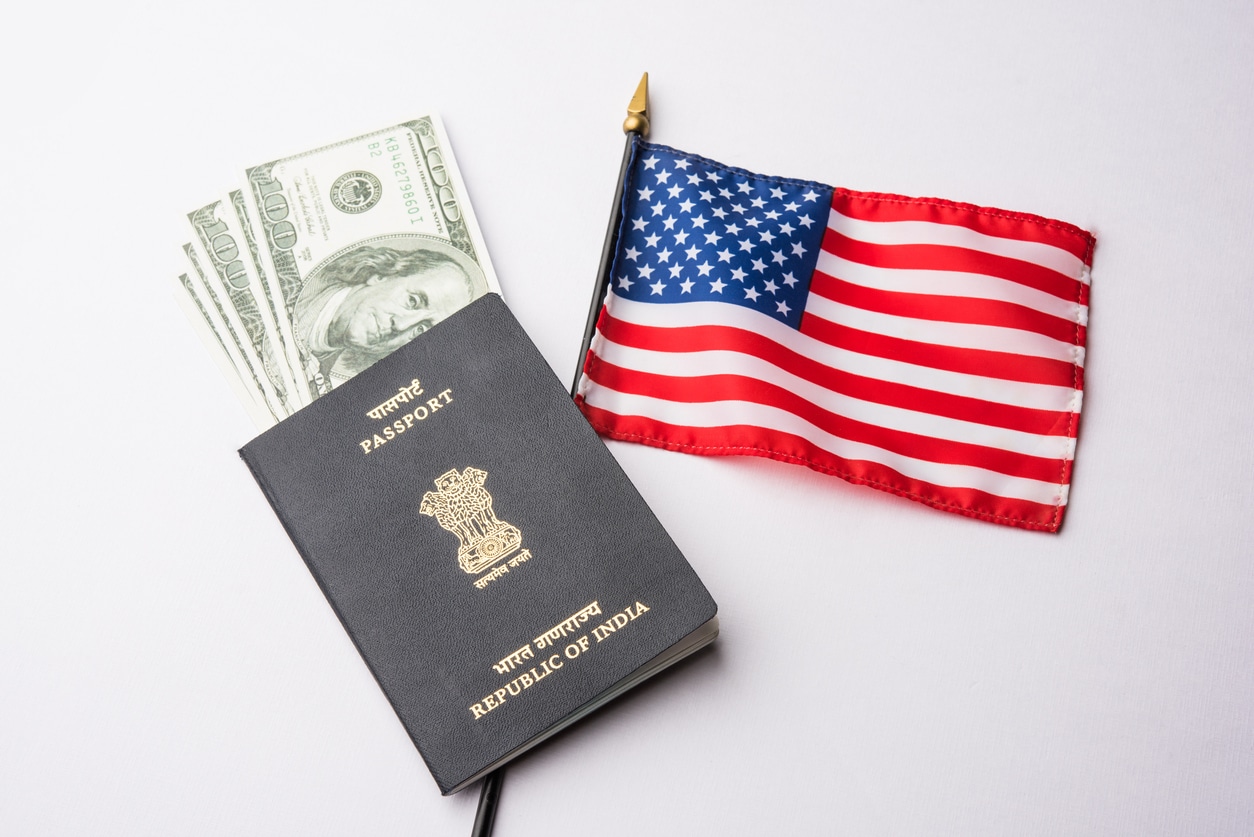- Understanding the Germany Student Visa:
- Types of Student Visas For Germany:
- Eligibility Criteria For a German Student Visa:
- Key Documents Required For the Application Process:
- Germany Visa Process For Indian Students:
- Steps to Apply for a German Student Visa from India:
- VFS Global Centers in India For Visa Application:
- Appointment Wait Times in India:
- Germany Visa Fees and Costs:
- Breakdown of Visa Fees For Indian Students:
- Checklist for a Successful German Student Visa Application:
- IELTS Requirement for Germany Student Visa:
- Understanding the Language Proficiency Requirement:
- Alternatives to Meeting the Language Requirement:
- Post-Study Work Opportunities in Germany
- Overview of Post-Study Work Visa Options:
- Steps to Transition from Study to Work in Germany:
- Conclusion
- Master Your Study Abroad Experience with Our Free Courses
- FAQs
Studying in Germany brings many opportunities for international students. Germany is well-known for its excellent education system, advanced research centers, and lively cultural atmosphere, attracting students who seek both academic excellence and cultural experiences.
However, preparing to study in Germany requires careful planning, especially when obtaining a German student visa.
A German student visa is the gateway to an excellent educational experience and a fulfilling academic adventure.
This article will explain the process of getting a German student visa, emphasizing its importance in reaching your academic goals in Germany. Come along as we discuss the necessary steps and requirements for studying in Germany.
Understanding the Germany Student Visa:
Getting a German student visa is important to achieve your educational goals in one of Europe’s most famous learning places. Germany offers a wide range of academic opportunities and is known for its strong academic reputation, attracting students worldwide.
However, it’s crucial to understand the German student visa process before beginning your academic journey.
Types of Student Visas For Germany:
Germany provides a range of student visas tailored to your stay’s duration and purpose:
1. Language Course Visa (Visum Zur Teilnahme an Eiem Sprachkurs): Designed for full-time academic pursuits, ensuring a rich educational experience.
2. Student Applicant Visa (Visum Zur Studienbewerbung): Intended for prospective students who wish to visit Germany to explore study opportunities, attend university admission interviews, or take preparatory courses.
3. Language Study Visa (Visum For Word Classes): Specifically crafted for intensive language programs, enabling linguistic proficiency alongside academic pursuits.
Each type of visa has its own set of requirements and rules, carefully designed to meet the various needs of international students.
Eligibility Criteria For a German Student Visa:
To fulfill the prerequisites for acquiring a student visa in Germany, individuals must satisfy specific stipulations:
1. Letter of Admission:
It is imperative to furnish an official acknowledgment letter from a reputable German educational institution or university as part of the visa application process.
2. Proof of Financial Means:
Aspirants are tasked with showcasing adequate financial capacity to sustain themselves throughout their residency in Germany. This can encompass various forms of documentation to prove financial resources, including:
- €11,208 deposit confirmation at a German-blocked bank account
- Sufficient proof of your parent’s income records and financial assets
- Scholarship awarding certificate specifying coverage amount
- Letter of commitment by a German resident (Verpflichtungserklärung) who can cover your expenses during your studies
- A bank guarantee is issued to you by a recognized bank.
3. Health Insurance:
International scholars studying in Germany must have valid health insurance. This is a mandatory requirement for visa application. If you’re from the EU/EEA or have a special agreement, you can use your existing insurance with an EHIC.
Otherwise, you need German health insurance. Many providers offer pre-arrival digital registration for convenience.
4. Academic Qualifications:
Candidates must possess the requisite academic credentials pertinent to their chosen area of study. This may necessitate the submission of academic transcripts, certifications, or diplomas.
5. Language Proficiency:
Acquiring proficiency in either German or English is crucial for securing a national student visa in Germany, contingent upon the language of instruction for the intended academic program.
Most universities mandate a minimum B2 level proficiency in either German or English, which can be substantiated through recognized language exams such as TestDaF or DSH.
Experience the Best of study in Germany with Great Learning!
- Study in Germany at low cost. No GRE/TOEFL required.
- Learn from the top universities.
- Benefit from up to 18 months of Job Seeker VISA.
- Choose from full-time and hybrid programs.
Enroll Now
Key Documents Required For the Application Process:
Applying for a German student visa necessitates the compilation of a comprehensive array of documents to substantiate your application. Key documents typically encompass:
1. Completed Visa Application Form: Applicants must diligently fill out the visa application form with meticulous accuracy and truthfulness, ensuring the provision of all requisite information.
2. Passport: A valid passport with a minimum validity of six months beyond the intended period of stay in Germany is indispensable.
3. Passport-Sized Photographs: When submitting your application to the German consulate or embassy, ensure that you include recent passport-sized photographs that meet their specific requirements.
4. Proof of Financial Means: It is crucial to provide evidence of sufficient funds to cover living expenses, such as bank statements, scholarship letters, or sponsorship letters.
5. Letter of Admission: Prospective students who wish to study in Germany must obtain a student visa. To apply for this visa, they need to have a formal acceptance letter from a recognized German university or educational institution.
It is essential to understand the various types of student visas available, meet the eligibility criteria, and prepare the required documents accurately to ensure a smooth visa application process. By doing so, students can embark on a rewarding academic journey in Germany with confidence.
Get Prepared for Studying in Germany!
Read our in-depth blog, “Requirements to Study in Germany in 2024 – A Complete Guide,” and ensure you’re fully informed before you apply.
Germany Visa Process For Indian Students:
Navigating the visa maze is essential for Indian students planning to study in Germany, ensuring a smooth transition to academic life in this culturally rich European country.
Steps to Apply for a German Student Visa from India:
Navigating the visa maze, especially when it comes to securing a German visa for Indians, is essential for Indian students planning to study in Germany, ensuring a smooth transition to academic life in this culturally rich European country.
1. Research and Preparation:
Begin by researching your chosen study program and university in Germany. Ensure that you meet the eligibility criteria for admission and have all the necessary academic qualifications.
2. Apply for Admission:
Once you’ve identified the program and university of your choice, submit your application for admission. Upon receiving an acceptance letter or confirmation of admission, proceed to the next step.
3. Gather Required Documents:
Compile all the required documents for your visa application, including the letter of admission, proof of financial means, health insurance, academic transcripts, and passport-sized photographs.
4. Complete Visa Application Form:
Fill out the German student visa application form accurately and comprehensively. Provide all necessary information and ensure that the information matches the documents you submit.
5. Schedule Visa Appointment:
Book an appointment at the nearest VFS Global Center or German consulate/embassy for your visa interview and document submission. It’s advisable to schedule your appointment well in advance to avoid any delays.
6. Attend Visa Interview:
On the scheduled date, attend your visa interview at the designated VFS Global Center or consulate/embassy. Be prepared to answer questions about your study plans, financial status, and intentions for returning to India after completing your studies.
7. Submit Biometric Data:
During your visa appointment, you will be required to provide biometric data, including fingerprints and a digital photograph, as part of the visa application process.
8. Pay Visa Fees:
Pay the required visa application fees at the time of your appointment. The fee structure may vary depending on the type of visa and duration of stay.
9. Track Application Status:
After submitting your visa application, you can track its status online through the VFS Global website or the German consulate/embassy portal. Be sure to follow up on any additional documentation or information requested by the authorities.
10. Collect Passport:
Once your visa application is processed and approved, collect your passport from the VFS Global Center or consulate/embassy. Your passport will contain a stamped visa, allowing you to travel to Germany for your studies.
VFS Global Centers in India For Visa Application:
VFS Global operates visa centers located across various urban areas in India, providing convenient access to the visa application process for German visas for Indians. These centers assist in submitting visa applications, collecting biometric data, and providing other essential services, making the visa application process easier for applicants.
By following these steps and utilizing the services offered by VFS Global Centers, Indian scholars can smoothly navigate the German visa application process, opening up opportunities for a fulfilling academic experience in Germany. Here are the current appointment wait times for various processing centers in India:
Appointment Wait Times in India:
| Processing Center | Appointment Wait Time | Booking Method |
| VFS Global in India | Waiting time not specified | Online or by calling 022-67866013 |
| German Consulate General in Bangalore | 2 days | Online or by calling 022-67866013 |
| German Consulate General in Chennai | 2 days | Online or by calling 022-67866013 |
| German Embassy in New Delhi | 10 weeks | Online or by calling 022-67866013 |
| German Embassy in Kolkata | 1 week | Online or by calling 022-67866013 |
| German Embassy in Mumbai | 48 hours | Online or by calling 022-67866013 |
Germany Visa Fees and Costs:
Understanding the financials of obtaining a German study visa is vital for Indian students. Navigating German visa fees ensures a smooth application, minimizing surprises for a seamless transition to student life.
Breakdown of Visa Fees For Indian Students:
The charges for Indian scholars seeking a German student visa typically involve various elements, contributing to the overall expenditure of the application process. While the precise charges might undergo slight fluctuations, it’s pivotal to grasp the conventional breakdown:
1. Visa Application Charge:
This stands as the principal levy imposed for processing the visa petition. The sum might oscillate depending on the visa category and duration of residence; thus, it’s prudent to scrutinize the latest charge structure before submitting the application.
The visa fees for short-term and long-term visas are as follows:
Short-Term – Schengen Visas:
- Visa Fee: €80.70 (Adult), €40.90 (Child 6-12 Years)
- Visa Fee in INR: INR 7,300 (Adult), INR 3,700 (Child 6-12 Years)
Long Term – National Visas:
- Visa Fee: €75.18 (Adult), €37.59 (Child 0-17 Years)
- Visa Fee in INR: INR 6,800 (Adult), INR 3,400 (Child 6-12 Years)
2. Service Surcharge by VFS:
VFS Global, the accredited entity for the German visa process in India, imposes a surcharge for streamlining the visa application procedure.
This levy encompasses administrative overheads linked with submission, authentication of documents, and gathering of biometric data. The VFS service fees are as follows:
- For Short Term: INR 1,730/-
- For Long Term: INR 916/-
- D-Stamping: INR 1,271/-
3. Health Insurance:
As a prerequisite for the visa, Indian scholars must procure health coverage for the entirety of their stay in Germany. The premiums for health insurance fluctuate based on the extent of coverage and the selected insurance provider.
4. Dispatch Fees:
Should you opt for a return of the passport and document via courier, additional charges for this amenity might ensue. Dispatch charges ensure the secure and punctual delivery of your documents to your designated address.
5. Preparing Your Application:
Crafting a finely-tuned visa application is essential for Indian students wishing to study in Germany. By meticulously preparing and focusing on details, applicants can improve their chances of obtaining a German student visa and beginning their academic journey promptly.
Checklist for a Successful German Student Visa Application:
A comprehensive German student visa checklist serves as a vital tool for Indian scholars, guiding them in gathering essential documents and ensuring seamless navigation through the visa application process. Below is a roadmap tailored to assist Indian scholars in their journey towards securing a student visa for Germany:
1. Completed Visa Application Form: Accurately fill in the visa application form with all requisite details, ensuring utmost truthfulness.
2. Letter of Acceptance: Procure a formal letter from a recognized German institution affirming admission into a chosen study program.
3. Financial Assurance: Present proof of ample financial means to sustain living expenses in Germany, including a statement from a blocked bank account, scholarship confirmation, or sponsorship endorsement.
4. Health Insurance: Secure health coverage meeting German standards for the entire duration of the stay.
5. Educational Credentials: Furnish academic transcripts and certificates from prior institutions to validate educational qualifications.
6. Linguistic Proficiency Certification: If applicable, provide evidence of proficiency in the language of instruction through recognized certificates like TestDaF or IELTS.
7. Passport Validity: Ensure that the passport remains valid for at least six months beyond the planned stay in Germany.
8. Biometric Photography: Present recent photographs adhering to specified guidelines.
9. Accommodation Verification: Submit documentation confirming arrangements for accommodation in Germany, such as a rental agreement or university dormitory confirmation.
10. Introductory Correspondence: Encompass a cover letter delineating the purpose of the visit, aspirations for academic pursuits in Germany, and any pertinent supplementary details.
IELTS Requirement for Germany Student Visa:
Mastering the language is vital for Indian students to secure a German student visa, especially considering the IELTS requirement for a Germany student visa. Although not obligatory, proficiency in the language of instruction, particularly for courses taught in German, is often required.
Experience the Best of study in Germany with Great Learning!
- Study in Germany at low cost. No GRE/TOEFL required.
- Learn from the top universities.
- Benefit from up to 18 months of Job Seeker VISA.
- Choose from full-time and hybrid programs.
Enroll Now
Read more: IELTS Band Score: Understanding Listening Test Scoring
Understanding the Language Proficiency Requirement:
For Indian students looking to study in Germany, showing they speak German is important. While IELTS is known for testing English, for German-taught programs, they may need to prove they know German.
Alternatives to Meeting the Language Requirement:
TestDaF, also known as the Test for German as a Foreign Language, serves as a standardized assessment tailored to evaluate one’s adeptness in the German language for scholastic intentions. This examination holds substantial recognition among German academic circles and establishments as validation of language proficiency.
1. DSH (German Language Test for University Admission):
DSH is another test frequently used by German universities to check the German language abilities of international students. Universities usually give it, and it is specifically designed to evaluate language skills needed for academic study.
2. Goethe-Zertifikat:
The Goethe-Institut provides diverse assessments, one being the Goethe-Zertifikat, gauging German language skills across different levels. Certain universities might recognize the Goethe-Zertifikat as proof of language command.
3. Language Preparation Classes:
Lots of universities in Germany provide language preparation classes to assist international students in enhancing their language abilities and meeting the language proficiency criteria for academic study. Finishing such classes may fulfill the language requirement for visa purposes.
Indian students aspiring to study in Germany should carefully review the Germany student visa requirements, including language proficiency specifications, specified by their chosen universities or study programs.
By preparing adequately and meeting the necessary language proficiency standards through tests like TestDaF, DSH, or the Goethe-Zertifikat, students can enhance their prospects of securing a German student visa and pursuing their academic goals effectively.
Post-Study Work Opportunities in Germany
After completing their studies in Germany, international students, including those from India, have the opportunity to explore various post-study work visa options. These visas allow graduates to remain in Germany and seek employment opportunities related to their field of study, thereby gaining valuable work experience and contributing to the German workforce.
Overview of Post-Study Work Visa Options:
1. Job Seeker Visa: The Job Seeker Visa enables graduates to search for employment in Germany for up to six months. Once they secure a job relevant to their qualifications, they can transition to a work visa or a Blue Card.
2. Work Visa: Graduates who find employment in Germany can apply for a work visa, which allows them to work and reside in the country legally. The duration of the visa depends on the employment contract.
3. Blue Card: For graduates with a job offer in a high-demand occupation, the Blue Card offers an accelerated path to residency and work rights in Germany. It provides certain advantages, such as easier family reunification and the possibility of permanent residency.
Steps to Transition from Study to Work in Germany:
- Secure Employment: The first step is to secure a job offer relevant to one’s qualifications and field of study.
- Visa Application: Once a job offer is obtained, graduates can apply for the appropriate work visa or Blue Card at the local immigration office.
- Residence Permit: Upon arrival in Germany, graduates must apply for a residence permit to reside and work in the country legally.
- By understanding the post-study work visa options available in Germany and following the necessary steps to transition from study to work, graduates can leverage their education and skills to pursue rewarding career opportunities in Germany.
Read more: Common IELTS Speaking Topics With Answers.
Conclusion
In conclusion, obtaining a visa to study in Germany is essential for international students, including those from India, seeking academic excellence and cultural enrichment. Understanding the visa process, including the various types of visas and eligibility criteria, is crucial for a successful application.
To obtain a Germany study visa, applicants must fulfill the Germany study visa requirements, which include submitting the necessary documents and demonstrating proficiency in the German language. By carefully preparing the required documents and meeting the language proficiency requirements, applicants can navigate the process with confidence.
Additionally, post-study work opportunities in Germany offer graduates, including those who hold a student visa for Germany from India, the chance to gain valuable work experience and contribute to the German workforce.
With careful planning and preparation, Indian students can embark on a fulfilling academic journey in Germany, paving the way for future success.Good luck with your visa application, and may your time studying in Germany be full of learning and happiness.
Master Your Study Abroad Experience with Our Free Courses
- Introduction to IELTS Exam
- Introduction to TOEFL Exam
- GRE Prep Course
- Smart English Basics for Professionals
- English Language Proficiency Tests for Study Abroad
- Scholarships and Financial Aid for Studying Abroad
- Study Abroad Budget Guide for Beginners
- Scholarships and Financial Aid for Studying Abroad
- Essay Writing for Study Abroad Scholarship
FAQs
The processing time for a German student visa varies depending on various factors, such as the time of year, the workload at the consulate, and the completeness of your application. Generally, it can take anywhere from four to twelve weeks. It’s advisable to apply well in advance of your intended travel date to account for any potential delays.
Yes, demonstrating sufficient financial means is a crucial requirement for obtaining a German student visa. You need to provide evidence that you can support yourself financially during your stay in Germany, including tuition fees, living expenses, and health insurance costs. Acceptable forms of proof may include bank statements, scholarship letters, or a blocked bank account.
Yes, international students in Germany are allowed to work part-time while pursuing their studies. However, there are restrictions on the number of hours you can work during term time. Typically, students are permitted to work up to 20 hours per week during the semester and full-time during semester breaks. It’s essential to check the specific regulations and limitations set by the German authorities.
Yes, having health insurance coverage is mandatory for all international students in Germany. You need to show proof of health insurance that meets the requirements of German authorities when applying for a student visa. This ensures that you have access to necessary healthcare services during your stay in Germany.
A national visa (Type D visa) is required for long-term stays in Germany, such as for study purposes exceeding 90 days. It allows you to enter Germany and subsequently apply for a residence permit. On the other hand, a Schengen visa is suitable for short-term stays of up to 90 days within 180 days for purposes such as tourism or business. If you plan to study in Germany for more than 90 days, you’ll need to apply for a national visa.









